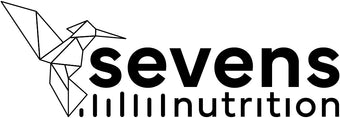Our body's nutrient-sensing system is intimately linked to the action of insulin, a key hormone that allows our cells to absorb glucose and other nutrients from the bloodstream. As we age, many people develop what is known as insulin resistance: cells stop responding effectively to this hormone, causing a cascade of metabolic imbalances that directly affect longevity and overall well-being.
This phenomenon is not only linked to the onset of diseases such as type 2 diabetes, but also contributes to premature cellular aging. Excess circulating glucose damages tissues, promotes systemic inflammation, and accelerates the deterioration of key organs such as the liver, pancreas, and heart. Furthermore, insulin resistance affects cellular repair and the body's energy balance, two key elements for a long and healthy life.
Recent studies have shown that preserved insulin sensitivity is associated with a longer life expectancy and a lower incidence of chronic diseases. Therefore, maintaining an adequate response to this hormone is a critical strategy in preventive and anti-aging medicine.
How can we intervene proactively?
There are several scientifically supported strategies that help improve insulin sensitivity, especially useful as we age:
-
Regular exercise , especially aerobic and resistance training, which improves glucose uptake by muscles.
-
Reduction in consumption of refined carbohydrates and simple sugars.
-
Increased fiber intake , which slows glucose absorption and modulates insulin response.
-
Specific supplementation , which can complement these habits.
What can Sevens Nutrition contribute in this context?
At this point, products like Curcumin BIO Sevens or Curcumin C3 Reduct Sevens can play an interesting role. Curcumin, the active ingredient in turmeric, has been shown in scientific studies to improve insulin sensitivity, reduce inflammation, and promote a more efficient metabolism. The C3 Reduct version contains tetrahydrocurcuminoids, a highly bioavailable form that enhances its effectiveness.
Furthermore, Detox Sevens , by promoting healthy liver function and improving metabolic efficiency, may indirectly contribute to glycemic balance and a more stable insulin response.



